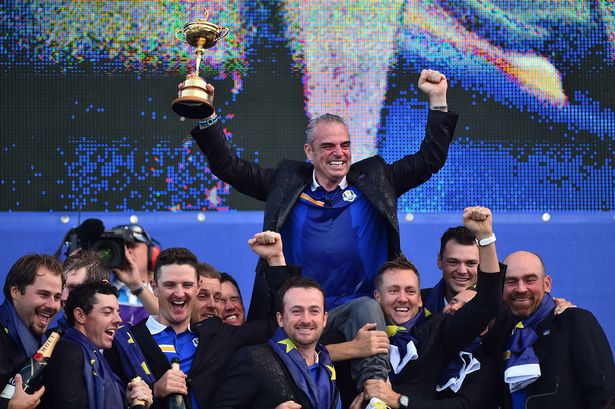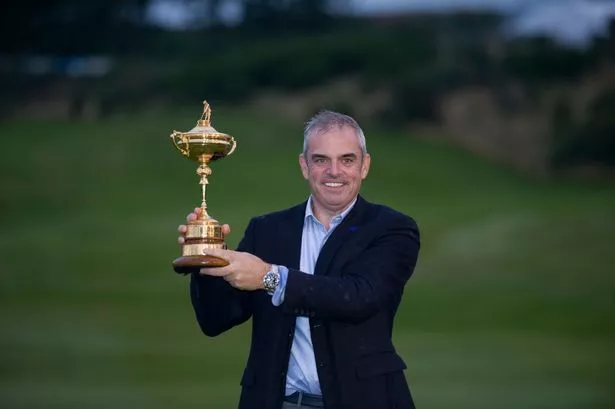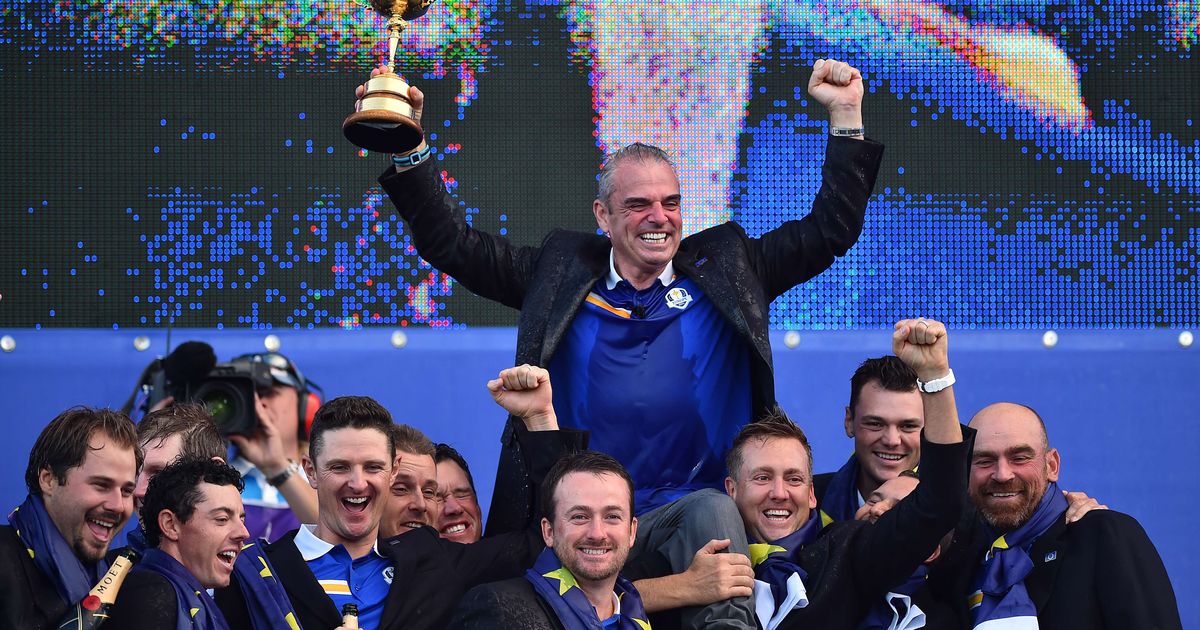Gleneagles winning captain outlines the humble origins of the statistical work which will play a big role at Bethpage
11:17, 11 Sep 2025Updated 11:17, 11 Sep 2025

Paul McGinley has revealed the birth of the data-age which helps drive Europe’s Ryder Cup bids.
The 2014-winning captain is Strategic Advisor to the visiting side as they aim to retain the trophy in New York.
Character and quality are key components in the 12-man unit, but skipper Luke Donald also digs into analytics with the assistance of his vice-captain Edoardo Moliani, who is the statistical brain of the unit.
The Italian provided outstanding information and insights in Rome two years ago which played a major role in Rory McIlroy and his team-mates sealing Europe’s win.
McGinley was ahead of his time as, 11 years ago ahead of the clash with the United States at Gleneagles, the Irishman set the ball rolling for a bigger data input.
He explained: “Well, I think I was the first captain. I’m pretty sure I was the first captain on either side to use a data team and analytics team. We brought in a company called Strokeaverage.com and I remember talking behind the scenes to the executive of the Ryder Cup in Europe and asking them for a budget to hire these guys that were going to do statistics and they thought I was off my tree and off my rocker, what was I doing having this guy in?
 Paul McGinley with the Ryder Cup he won at Gleneagles in 2014(Image: Perthshire Advertiser/Richard Wilkins)
Paul McGinley with the Ryder Cup he won at Gleneagles in 2014(Image: Perthshire Advertiser/Richard Wilkins)
“Before that, when I was a vice-captain at Monty [Colin Montgomerie] and [Jose-Maria] Olazabal, I was the stats guy. I was the guy bringing to the table with a sheet of paper with 1-12, our best drivers, our longest drivers, our guys who hit the most fairways, the guys who hit the most greens, our best putter. All basically ranked on DP World Tour as well as PGA Tour data. Very, very simplistic, very basic and I used that as a basis to form some of the partnerships.
“Strokeaverage.com took it to a different level. They were also working with some of the players at that time on the European team so that was the head start that we had with them and they were a sounding board. They were a reference point.
“They’re not something that we live and die by. We’re not going into the weeds in terms of we’ve got a three percent or four percent advantage if we go this direction. It’s got to be something big in order for the stats guys to convince us.”
Speaking on Golf Channel, McGinley continued: “I remember meeting them for the first time and they sat down to have a meeting with me and I didn’t explain the role well enough to them because they came with a massive presentation and they talked for half an hour. I hadn’t talked at any stage and said, okay guys, stop. That’s enough. Let’s reconvene this meeting and here’s the deal.
“The meeting is going to be 10 minutes long and I want one page and that’s it. I’m not going into the weeds on this. There’s a lot bigger fish to fry than just being data orientated, so once we got past that we got onto a right path.
“We’ve also got Eduardo Molinari now who’s doing our stats and we’ve a lot of confidence in him. He gave us great insights going into Rome that we put to good play in terms of how we set up the golf course and the strengths and weaknesses of our players.
“I think we got our pairings particularly strong when it came to the foursomes in that regard and I think Edoardo had a big, big hand in that.
“So there is places that we use it and places that we don’t. There are more important things than data in winning Ryder Cups.”
